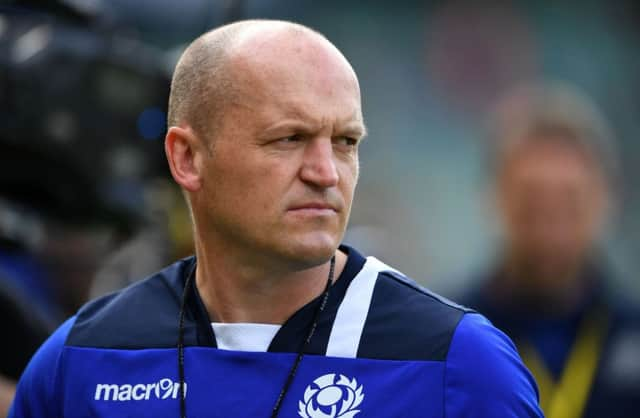5 things we learned from Scotland rugby team's summer tour


It’s a thin line
After a miserably barren decade and a half, the improvement in the fortunes of Scotland’s rugby team has been pounced on like a thirsty desert wanderer happening upon a glorious oasis. The upswing under Vern Cotter was, for the most part, a joy to behold as Scotland finally began to play with panache and show themselves capable of beating good teams, not luckily by the boot in rain and wind, but with style. However, it has needed everything to be firing at peak pitch for this to happen. As witnessed in the traumatic loss at Twickenham this year it doesn’t take much for the wheels to swiftly come off. Gregor Townsend marked his elevation to the top job with that superb win over Australia in Sydney but a week later the fragility was exposed by defeat in Fiji. Reasons for optimism remain high, but any room for complacency remains firmly at zero.
Finn class
He can still throw in the occasional howler and poor performance but the importance of Finn Russell to Scotland’s fortunes has never been more clear. He is the pivot upon which everything hinges. Not since Townsend himself have Scotland had a stand-off that can menace an opposition with such skill and unpredictability. A class playmaker is an absolute must in the modern game and, while still a work in progress, Russell is undeniably one. His absence, to what looks increasingly like a dubious call in to the Lions squad, was evident in Suva. Duncan Weir, Peter Horne and Ruaridh Jackson are all decent replacements but lack the X-factor needed to unlock top-class opposition.
Age is no barrier
Advertisement
Hide AdAdvertisement
Hide AdCompared to other top-tier nations, Scotland’s centurion club is quite thin but Ross Ford looks like he could push well on into the hundreds. Now Scotland’s most capped player, the 33-year-old was far from on a farewell tour this summer and cemented his position as the country’s number one No 2. Youngsters Fraser Brown, who was preferred in the Six Nations, and Stuart McInally will push hard but Ford, who took his try count from two to five over the past few weeks, has shown there is life in the old dog yet.
Depth is there
While it is true that a dip below full strength does leave Scotland vulnerable, it would be wrong to suggest that there is no strength in depth in certain areas. Greig Tonks was a bit of a forgotten man after leaving Edinburgh for the English second tier with London Irish but proved himself to be decent replacement for Stuart Hogg, while Ben Toolis showed up well in what is now a satisfyingly crowded field in the engine room. Key areas remain thin but progress is undeniable.
Nel’s back
There has been much concern surrounding the the long-term future of scrum linchpin WP Nel after his neck troubles last season. Had he stayed fit there was every chance he would have been a Lions shoe-in this summer but that was not to be. Any neck problems for a front-rower spark worry, but by featuring in all three of the summer Tests, the tighthead has shown that he is back and ready to reclaim the key man status for Edinburgh and Scotland. World class players in his position are valuable gems and, while not the most eye-catching or glamorous roles, the 30-year-old will continue to be key for club and country in the next few years.